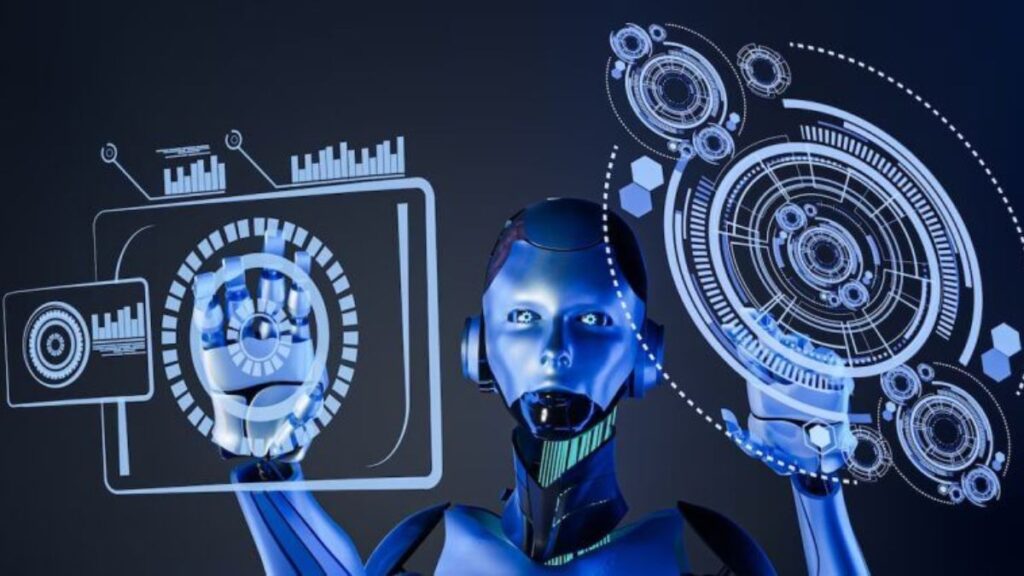Artificial Intelligence (AI) is rapidly transforming various sectors of our lives, making it imperative to explore what the future holds for this groundbreaking technology. As we look ahead to 2030, it is essential to consider the trends and predictions that will shape the landscape of AI. This article delves into the advancements expected in AI technology, the implications for industries and society, and the ethical considerations that will accompany these changes.
The Current State of Artificial Intelligence
To understand the future of AI, it’s crucial to grasp its current state. As of 2024, AI technologies, including machine learning, natural language processing, and computer vision, have already begun to revolutionize industries. Businesses are increasingly leveraging AI for data analysis, customer service, and operational efficiency. Virtual assistants, predictive analytics, and autonomous systems are just a few examples of AI applications making waves today. The foundation laid by these technologies hints at a more profound transformation by 2030.
AI in Everyday Life
AI has embedded itself into daily life, from recommendation algorithms in streaming services to smart home devices that learn user preferences. Personalization, driven by AI, has become a standard expectation across platforms. By 2030, we can anticipate even deeper integration of AI into our routines. Devices will communicate seamlessly, offering personalized experiences that adapt to individual behaviors and preferences. For instance, smart homes will not only respond to commands but also anticipate needs, such as adjusting the temperature based on user activity or suggesting meal plans based on dietary preferences.
Trends Shaping AI Development
Several key trends are likely to influence the development of AI by 2030. These trends encompass advancements in technology, shifts in societal needs, and evolving business strategies.
1. Enhanced Machine Learning Algorithms
Machine learning (ML) is at the core of AI advancements. By 2030, we can expect to see significant improvements in ML algorithms, making them more efficient and capable of processing vast amounts of data in real time. Techniques such as reinforcement learning and transfer learning will evolve, enabling AI systems to learn from fewer examples and adapt to new tasks more quickly. This evolution will facilitate more autonomous systems, particularly in sectors like healthcare, finance, and transportation.
2. AI and the Internet of Things (IoT)
The convergence of AI and the Internet of Things (IoT) will create an interconnected ecosystem where devices communicate and collaborate. By 2030, we can expect a proliferation of smart devices, from wearables to industrial sensors, all equipped with AI capabilities. This integration will enhance data collection and analysis, leading to more informed decision-making and improved efficiency. For instance, smart cities powered by AI and IoT will optimize traffic flow, energy consumption, and public services, creating a more sustainable urban environment.
3. Natural Language Processing Advancements
Natural Language Processing (NLP) is another critical area where AI is expected to make significant strides by 2030. As AI systems become more adept at understanding and generating human language, we will see more sophisticated conversational agents that can engage in nuanced dialogues. This development will enhance customer service experiences, making virtual assistants indistinguishable from human operators. Additionally, NLP advancements will facilitate better cross-language communication, breaking down language barriers in global business and collaboration.
The Implications of AI for Various Industries
As AI technologies continue to evolve, their impact will be felt across numerous industries. Here are some sectors poised for transformation by 2030:
1. Healthcare
The healthcare sector stands to benefit immensely from AI advancements. By 2030, we can expect AI-driven diagnostic tools to become commonplace, assisting healthcare professionals in identifying diseases and recommending treatment plans with unprecedented accuracy. Wearable devices equipped with AI will monitor patients’ health in real-time, enabling proactive interventions and personalized treatment plans. Moreover, AI algorithms will play a pivotal role in drug discovery, significantly reducing the time and cost associated with bringing new medications to market.
2. Finance
In the financial sector, AI will revolutionize how businesses and individuals manage money. Predictive analytics will empower financial institutions to assess risk more effectively, leading to improved lending practices and investment strategies. By 2030, AI-driven robo-advisors will provide personalized investment advice tailored to individual risk profiles and financial goals. Fraud detection will also see enhancements, with AI algorithms identifying unusual patterns and flagging potential threats before they escalate.
3. Transportation
The transportation industry is on the brink of a significant transformation, largely driven by AI advancements. By 2030, autonomous vehicles are expected to become more mainstream, with AI systems navigating roads, reducing accidents, and optimizing traffic flow. Public transportation systems will also benefit from AI, with smart routing and scheduling improving efficiency and accessibility. The logistics industry will experience a revolution as AI optimizes supply chain management, reducing costs and delivery times.
Ethical Considerations in AI Development
As we look forward to the future of AI, it is crucial to address the ethical considerations that accompany its advancements. The growing reliance on AI raises questions about accountability, privacy, and the potential for bias in decision-making processes.
1. Accountability and Transparency
As AI systems take on more decision-making roles, establishing accountability becomes paramount. By 2030, we must develop frameworks that clarify who is responsible for the actions of AI systems, particularly in critical areas like healthcare and law enforcement. Transparency in AI algorithms is essential to ensure that stakeholders can understand how decisions are made and challenge those that may be unjust or biased.
2. Privacy Concerns
The integration of AI into everyday life raises significant privacy concerns. With the proliferation of data collected by AI-powered devices, individuals may feel their privacy is compromised. By 2030, it will be crucial to establish robust data protection regulations that safeguard personal information while allowing for innovation. Striking the right balance between leveraging data for AI advancements and protecting individual privacy will be a significant challenge for policymakers.
3. Mitigating Bias
AI systems are only as good as the data they are trained on. If training data reflects biases present in society, AI algorithms may perpetuate these biases in decision-making processes. By 2030, it is essential to develop methods for identifying and mitigating bias in AI systems to ensure fair outcomes for all individuals. Diverse datasets and inclusive AI development practices will be critical in addressing this issue.
Conclusion: Preparing for the Future of AI
The future of artificial intelligence is poised to reshape our world in profound ways by 2030. From enhanced machine learning algorithms to the convergence of AI with IoT, the possibilities are vast and exciting. As we embrace these advancements, it is crucial to remain vigilant about the ethical implications and societal impacts of AI technologies. By fostering a culture of transparency, accountability, and inclusivity, we can navigate the complexities of AI development and ensure that it serves the betterment of society.
In conclusion, the trends and predictions for AI by 2030 are not just about technological advancements; they are about how we, as a society, choose to harness the power of AI for positive change. By preparing for these changes today, we can pave the way for a future where AI enhances our lives, drives innovation, and contributes to a better world.






